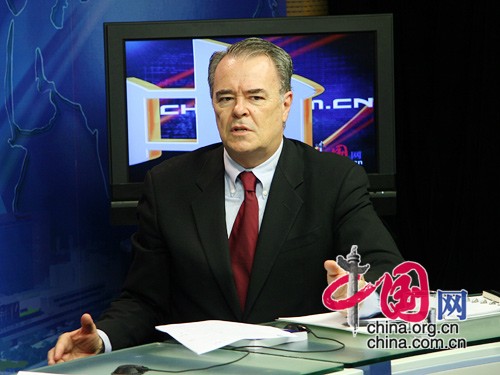|

|
|
Dr. John Rutledge speaking?in?an exclusive interview with china.org.cn on September 17, 2008. |
By Lindsay Yan
China should halt the steady appreciation of yuan as soon as possible to keep out speculative funds because a stable yuan is crucial to China's long-term economic development, said Dr. John Rutledge, chairman of Rutledge Capital and former economic advisor to the Reagan and Bush governments, on Wednesday.
In an exclusive interview with China.org.cn, Dr. Rutledge expressed concern at the pace of the yuan's appreciation. China's yuan-dollar peg policy worked very well for China, making China the best-performing economy in the world from 1995 to 2005, Dr. Rutledge said. He argued that China's stock market and property market problems all happened after the Chinese government floated its currency. It is therefore essential for China to put a stop to market expectations of further yuan appreciation and "close the door on the speculators", Dr. Rutledge noted.
China's surging foreign exchange reserves, which amounted to a record US$1.8 trillion at the end of the first half-year, have caused huge domestic concerns. However, Dr. Rutledge holds a different view.
In his opinion, the bulk of China's foreign exchange reserves are related to the way the Chinese manage transactions. Dr. Rutledge pointed out that the Chinese still tend to carry out most transactions in daily life and business with paper money, while the Americans do them electronically, reducing the demand for paper money.
"As the trend in China's capital market tends towards more electronic transactions... China will not have to hold so many reserves. So over time the reserves will shrink," he said. He suggested China continue its on-going reform in the financial system and bring in more new technology and management processes.
Dr. John Rutledge is one of the principal architects of the Reagan economic plan in 1980-81 and has been an advisor to the Bush White House. He now is the chairman of Rutledge Capital, a private equity investment firm in the United States.
(China.org.cn, September 19, 2008)